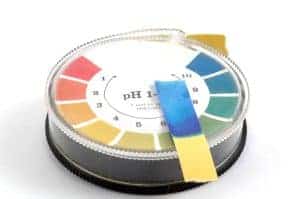
The low down on Potassium – do you really need to avoid it if you have CKD?

Today I want to talk about one of my pet peeves when it comes to dietary advice for people with chronic kidney disease (CKD) and that is the issue of potassium.
So what is it that I take issue to?
Well, it’s the widespread belief that all people with CKD must follow a low potassium diet.
I hear this from clients (who have generally been told this by their doctor or dietitian), read it on websites discussing dietary recommendations for people with kidney disease and in comments on our Facebook page.
But here’s the thing, not ALL people with CKD need to follow a low potassium diet. Every BODY with kidney disease is different which means there can be no ‘blanket rules’ and not only that, if you are following a low potassium diet when you don’t need to, you actually may be contributing to your kidney disease getting worse and increasing the risk of other negative effects on your health.
Have I got your attention?
Great! So, let’s delve into this topic a bit further.
What is potassium?
Potassium is an important mineral found in the foods we eat, it’s also an electrolyte which means that it conducts electrical impulses throughout the body. Potassium is critical for our health so having levels that are too high or too low can have dire consequences.
Some of the functions of potassium include:
- Maintaining normal blood pressure
- Transmitting nerve signals between organs
- Controlling muscle contractions
- Ensuring optimal water balance within the body
- Balancing pH in the body
- Keep heartbeat regular
- Regulates proper digestion processes
- Preventing stroke and heart disease
- Maintaining bone density
- Maintaining kidney health
- Moves nutrients into cells and waste products out of cells
All pretty important functions right?
There’s a lot of discussion about the issues that can arise if potassium levels are too high, but not having enough potassium creates just as many problems.
Symptoms of high potassium
High levels of potassium in the blood is called hyperkalaemia.
Hyper = above normal
Kalaemia = potassium in the blood
Signs and symptoms of hyperkalaemia include:
- Abnormal heart rhythm
- Chest pain
- Muscle weakness
- Numbness and tingling
- Nausea, vomiting or diarrhoea
- Difficulty breathing
- Heart attack
Symptoms of low potassium
Low levels of potassium in the blood are called hypokalaemia.
Hypo = below normal
Kalaemia = potassium in the blood
Signs and symptoms of hypokalaemia include:
- Muscle twitches, cramps or weakness
- Abnormal heart rhythm
- Heart attack
- Fatigue
- Constipation
- Tingling or numbness
- High blood pressure
- Increased urination
- Breathing problems
- Low mood
- Osteoporosis
- Kidney damage
Potassium regulation
Our bodies can’t produce potassium, so it must be obtained through our diet. Having too much or too little potassium is equally problematic, for this reason our body works hard to keep potassium levels within a specific range but for various reasons this isn’t always possible.
Potassium is obtained through our diet and 90% is excreted through the kidneys with 10% excreted through the gut. The kidneys adapt to changes in potassium intake so when potassium intake is high, the kidneys work to excrete more potassium and when intake is low, potassium loss in urine reduces.
So what happens if you have kidney disease?
With the progression of kidney disease, potassium excretion from the kidneys decreases. Potassium is less able to move across the filtering membrane within the kidney nephron to be excreted in urine so can start to build up in the blood.
The kidneys have various adaptive mechanisms that help them maintain potassium levels within range and generally speaking, potassium homeostasis is well maintained until the GFR falls below 15.
But it’s actually not that simple. There is a lot more to consider when it comes to potassium regulation. There is a lot of talk about dietary potassium when it comes to elevated potassium levels but there are a number of other things that have much greater impacts on potassium levels that need to be taken into consideration.
Other causes of high potassium
- Metabolic acidosis (acidity of the body)
- Poorly controlled diabetes
- Tissue and muscle breakdown
- Heart failure
- Constipation
- Medications
Just like there are various reasons for having high potassium levels, there are also different things that contribute to low potassium levels (even in people with kidney disease).
Causes of low potassium
- Diuretics such as furosemide and bumetanide
- Excessive alcohol use
- Diarrhoea and vomiting
- Laxative use
- Magnesium deficiency
- Steroid medication
- Some antibiotics
- Kidney dysfunction
Role of potassium in CKD

https://www.sciencedirect.com/science/article/abs/pii/S0085253820304221
Potassium performs many critical roles in the body so reducing potassium intake if you don’t need to can have negative consequences. I mentioned a number of the important roles of potassium earlier in this article so here are just a few that are particularly relevant for people with CKD.
The two main causes of kidney disease world-wide are diabetes and high blood pressure. Low potassium intake is associated with high blood pressure, high glucose levels and diabetes. High intake of potassium helps to lower blood pressure and is associated with decreased risk of cardiovascular mortality.
So not eating enough potassium can increase the risk of having high blood pressure and diabetes, both of which are linked to development and progression of CKD. Also, multiple observational studies in different severities of CKD have shown that high dietary potassium intake is associated with a lower risk of death and progression of kidney disease. Yes that’s right, not eating enough potassium can contribute to progression of kidney disease.
I don’t know about you but to me that’s a pretty good reason not to limit your potassium intake if you don’t actually need to!
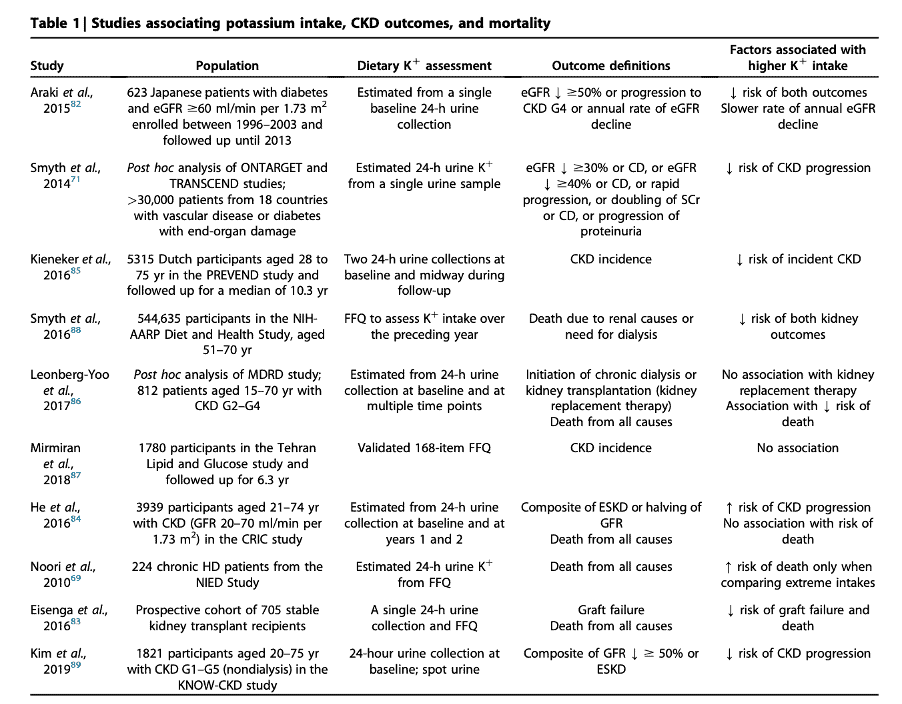
https://www.kidney-international.org/article/S0085-2538(19)31012-9/fulltext
Also, if you are following a low potassium diet when you don’t need it, you are not only missing out on the benefits of potassium itself but you’re also often missing out on important alkaline foods that are good sources of fibre and high in phytonutrients.
Phytonutrients, also called phytochemicals, are chemicals found in fruits, vegetables, beans and other plants that provide significant benefits for humans. Phytonutrients have antioxidant and anti-inflammatory activities, boost immunity, protect against toxins and defend against illness, heart disease, cancer and kidney disease.
It is well known that a plant-based diet that is higher in fruit and vegetables is associated with slower progression of CKD and reduced cardiovascular mortality and it is these foods that are typically restricted when someone is following a low potassium diet.
Measuring potassium levels
Potassium levels are easily measured via a blood test. A normal range of potassium is between 3.5 to 5.2 mmol/L (may differ slightly between testing labs). Multiple observational studies suggest that the optimal range of potassium is 4 to 5 mmol/L.
Knowing what your potassium levels are is key to understanding whether or not you should be following a low potassium diet so I strongly encourage everyone with kidney disease to get copies of your blood tests and track your potassium levels over time.
There are a few things that can cause a falsely elevated potassium level on a blood test. These include fist clenching during the blood draw, mechanical trauma, tourniquet use greater than 1 minute, blood clotting or elevated white blood cell or platelet counts.
Do you need to follow a low potassium diet?
It’s not uncommon for all people with kidney disease (particularly those in the later stages) to be told to eat a low potassium diet as a blanket rule.
This is not necessary for everyone with kidney disease. Only those people who have elevated potassium levels on their blood tests need to restrict potassium.
Let me say that again, only people with elevated potassium levels need to follow a low potassium diet regardless of your stage of kidney disease.
Other ways to lower potassium levels
Now, I don’t want to throw a cat amongst the pigeons here BUT more recent reviews on the subject of potassium levels in people with CKD have found that there is a only a weak association between dietary potassium intake and potassium levels in people with CKD or end stage renal disease which challenges the belief that the amount of potassium someone consumes strongly influences potassium concentration. More research is certainly needed on the topic.
Now I’m not saying that you shouldn’t follow a low potassium diet if you have elevated potassium levels but just that dietary potassium is not the whole picture.
Other ways to lower potassium:
- Reduce acidity by following an alkaline diet and use alkalising supplements if needed
- Control blood sugar levels if diabetic
- Be aware of medications that may raise potassium like Angiotensin Converting Enzyme inhibitors (ACE inhibitors), Angiotensin Receptor Blockers (ARBs), potassium sparing diuretics and non-steroidal anti-inflammatories (NSAIDs)
- Treat constipation
- Avoid dehydration
- Exercise (we lose potassium through sweat and when we use our muscles, they draw more potassium into them)
- Treat underlying conditions- it makes sense that if kidney disease is the cause of your high potassium levels, then addressing this is the best thing you can do to lower your potassium.
Hopefully you now understand why I’m saying that not everyone with kidney disease needs to follow a low potassium diet. Yes, it is important for those people with elevated potassium levels (along with addressing some of the other factors that contribute to high potassium levels) but not necessary for everyone.
The key thing I want to impress on you is to keep track of your potassium levels on your blood tests. This will tell you whether or not YOU, not the person next to you with kidney disease, need to limit your potassium intake.
If you’ve found this article useful, I’d love for you to let me know by clicking the ‘SHARE’ button below, or better yet, come join our awesome community over on our Facebook page and drop me a comment.
Share This Article
LIKE WHAT YOU’VE READ?
Sign up for free updates delivered to your inbox. Join our community and get tips on health, wellness, nutrition, and more.
More From Our Blog
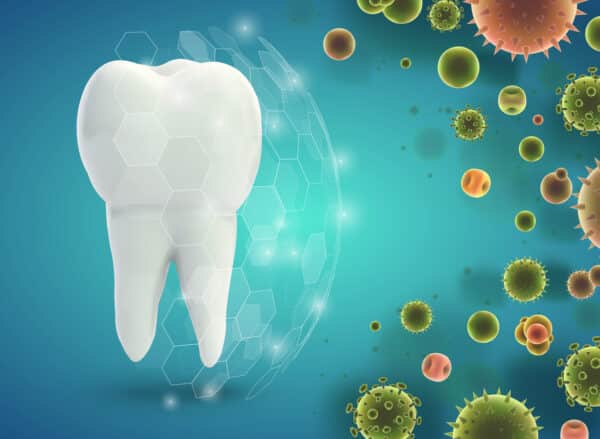
The Oral Microbiome & Chronic Kidney Disease
The oral microbiome plays an essential role in the incidence and development of
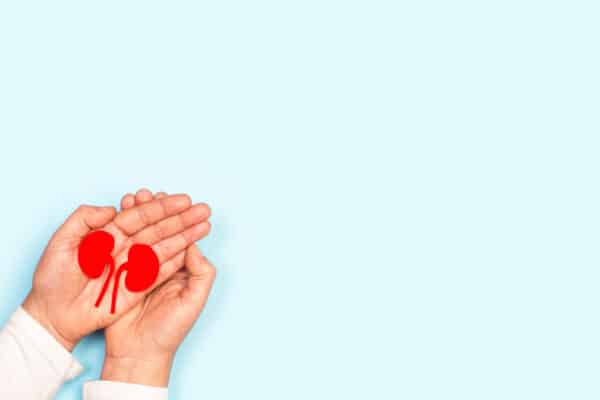
Natural Therapies In The Treatment of Polycystic Kidney Disease
Regarding dietary interventions in treating and managing PKD, the science is solid. The
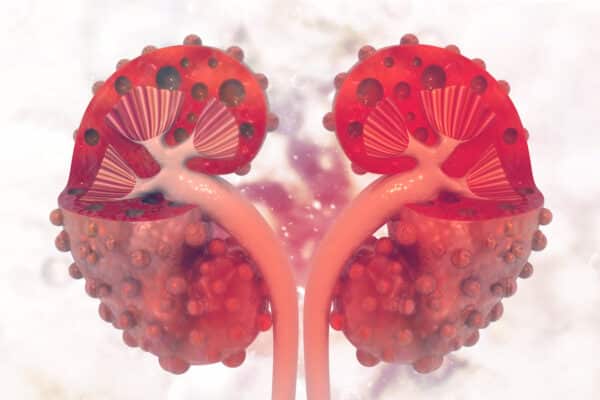
What Causes Cyst Formation In Polycystic Kidney Disease?
What is polycystic kidney disease? Polycystic kidney disease (PKD) is a prevalent genetic
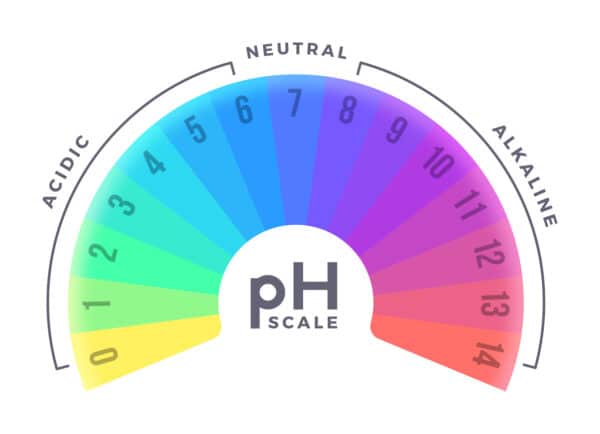
Bicarbonate Supplements? Is It The Best Way To Alkalize in Kidney Disease?
Throughout the ages, human diets have undergone a significant transformation, shifting from an

The Big Question… Can Kidney Disease Be Reversed?
Kidney disease can range from mild to severe, so the potential for reversal

SS-31 Peptide and Kidney Disease
Kidney disease is a global health concern. The kidneys, especially the proximal tubules,






